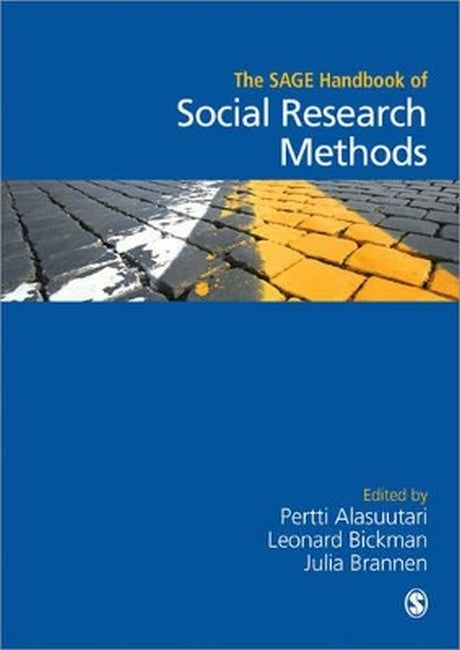Pertti Alasuutari is a sociologist, cultural studies scholar, paterfamilias and a highly significant figure in the development of both Finnish and international qualitative research. His career has gone from strength to strength as regards advancement in Finnish academia, as witnessed by some twenty books, and numerous articles in both Finnish and foreign journals. Yet Professor Alasuutari insists that he did not consciously choose the career of a sociologist. Professor Alasuutari completed his school education in Rovaniemi, Lapland in 1975 and went to study technology at the University of Oulu. But not for long. In 1977 he dropped out and began to dream of becoming a journalist, in the meantime doing supply teaching. "In summer I studied journalism at summer university in Lapland and began my military service" His days in the army driving a desk led him to another state agency. In autumn 1978 the train from the north arrived in Tampere with the 22-year-old on board. He had gained admission to study sociology. "For the first year I only studied journalism, and didn't even set foot in the Department of Sociology," grins Professor Alasuutari. Career development In 1983 the Westermarck Society awarded a prize for a master's thesis to the youthful Alasuutari. The thesis was entitled "The Realm of Male Freedom". The ethnographic approach was to describe the alcohol culture of a group of men patronizing a suburban pub. Leonard Bickman, Ph.D., is Professor of Psychology, Psychiatry and Public Policy. He is director of the Center for Evaluation and Program Improvement and Associate Dean for Research at Peabody College. He earned his Ph.D. in psychology (social) from the City University of New York, his master's degree in experimental psychopathology from Columbia University and his bachelor's from the City College of New York. Professor Bickman is a nationally recognized leader in program evaluation and mental healthservices research on children and adolescents. He has published more than 15 books and monographs and 180 articles and chapters and has been principal investigator on over 25 major grants from several agencies. He is co-editor of the Applied Research Methods Series published by Sage Publications since 1980. He is also co-editor of the Handbook of Applied Social Research and is collaborating on a new International Handbook of Social Research. He is the co-author of the very popular book Applied Research Design: A Practical Guide. Julia Brannen is Emerita Professor of the Sociology of the Family at Thomas Coram Research Unit, UCL Institute of Education. Her research interests include families and intergenerational relations, the work-family interface and food in families. She has a special interest in methodology including mixed methods, comparative cross-national research, biographical approaches. Her most recent book is Social Research Matters (2019).
Request Academic Copy
Please copy the ISBN for submitting review copy form
Description
Social Research in Changing Social Conditions PART ONE: DIRECTIONS IN SOCIAL RESEARCH The End of the Paradigm Wars? - Alan Bryman The History of Social Research Methods - Marja Alastalo Assessing Validity in Social Research - Martyn Hammersley Ethnography and Audience - Karen Armstrong Social Research and Social Practice in Post-Positivist Society - Pekka Sulkunen From Questions of Methods to Epistemological Issues - Ann Nilsen The Case of Biographical Research Research Ethics in Social Science - Celia B. Fisher and Andrea E. Anushko PART TWO: RESEARCH DESIGNS The Core Analytics of Randomized Experiments for Social Research - H S Bloom Better Quasi-Experimental Practice - Thomas D. Cook and Vivian Wong Sample Size Planning with Applications to Multiple Regression - Ken Kelly and Scott E. Maxwell Power and Accuracy for Omnibus and Targeted Effects Re-Conceptualizing Generalization in Qualitative Research - Giampietro Gobo Old Issues in a New Frame Case Study in Social Research - Linda Mabry Longitudinal and Panel Studies - Janet Holland, Rachel Thomson and Jane Elliott Comparative and Cross-National Designs - David de Vaus PART THREE: DATA COLLECTION AND FIELDWORK Modern Measurement in the Social Sciences - James A. Bovaird and Susan E. Embretson Natural and Contrived Data - Susan Speer Self Administered Questionnaires and Standardized Interviews - Edith de Leeuw Qualitative Interviewing and Feminist Research - Andrea Doucet and Natasha Mautner Biographical Methods - Joanna Bornat Focus Groups - Janet Smithson PART FOUR: TYPES OF ANALYSIS AND INTERPRETATION OF EVIDENCE An Introduction to the Multi Level Model for Change - Suzanne E. Graham, Judith D. Singer and John B. Willett Latent Variable Models of Social Research Data - Rick H. Hoyle Equating Groups - Stephen West and Felix Thoemmes Discourse Analysis and Conversation Analysis - Charles Antaki Analyzing Narratives and Story-Telling - Matti Hyvaerinen Reconstructing Grounded Theory - Kathy Charmaz Documents and Action - Lindsay Prior Video and the Analysis of Work and Interaction - Christian Heath and Paul Luff Secondary Analysis of Qualitative Data - Janet Heaton Secondary Analysis of Quantitative Data Sources - Angela Dale, Jo Wathan and Vanessa Wiggins Conducting a Meta Analysis - Erika A. Patall and Harris Cooper Synergy and Synthesis - Jane Fielding and Nigel Fielding Integrating Qualitative and Quantitative Data The Analytic Integration of Qualitative Data Sources - Ann Cronin, Victoria D. Alexander, Jane Fielding, Jo Moran-Ellis and Hilary Thomas Combining Different Types for Quantitative Analysis - Max Bergman Writing and Presenting Social Research - Amir Marvasti

